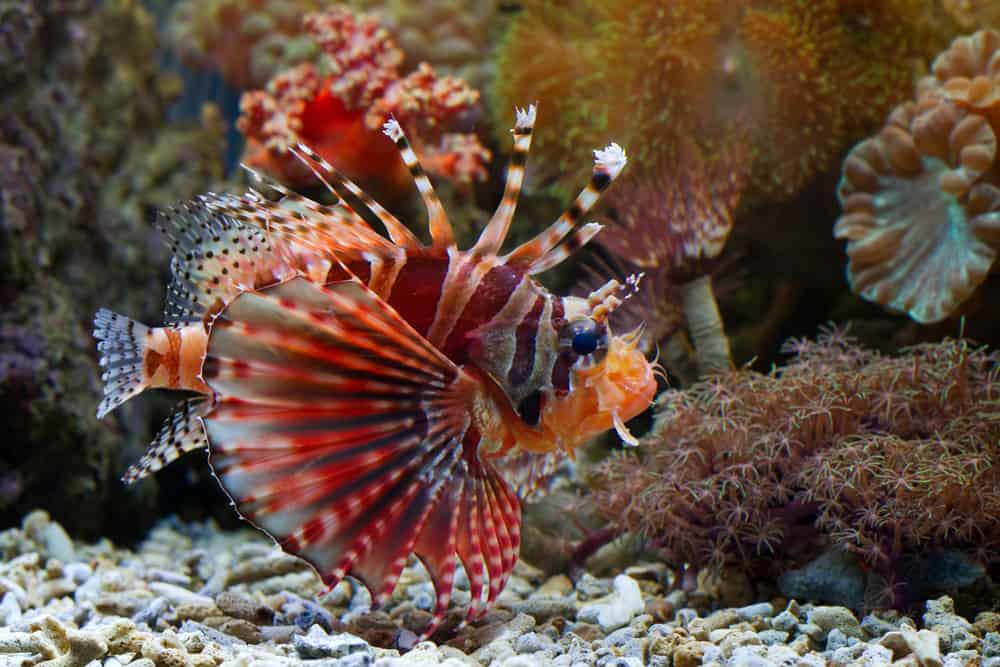
Lionfish are majestic creatures, and they are mesmerizing to watch in their tank.
Because of their beauty, you may be tempted to get some for your home, but before you do, it’s important to know whether or not lionfish are reef safe.
You may be on the fence due to their venomous spines and predatory nature and are wondering if they will actively nip at your coral or not.
Wonder no more, for the answer is simple!
It’s important to provide all of your fish with a proper environment, and it’s easy to get started.
Are Lionfish Reef Safe?
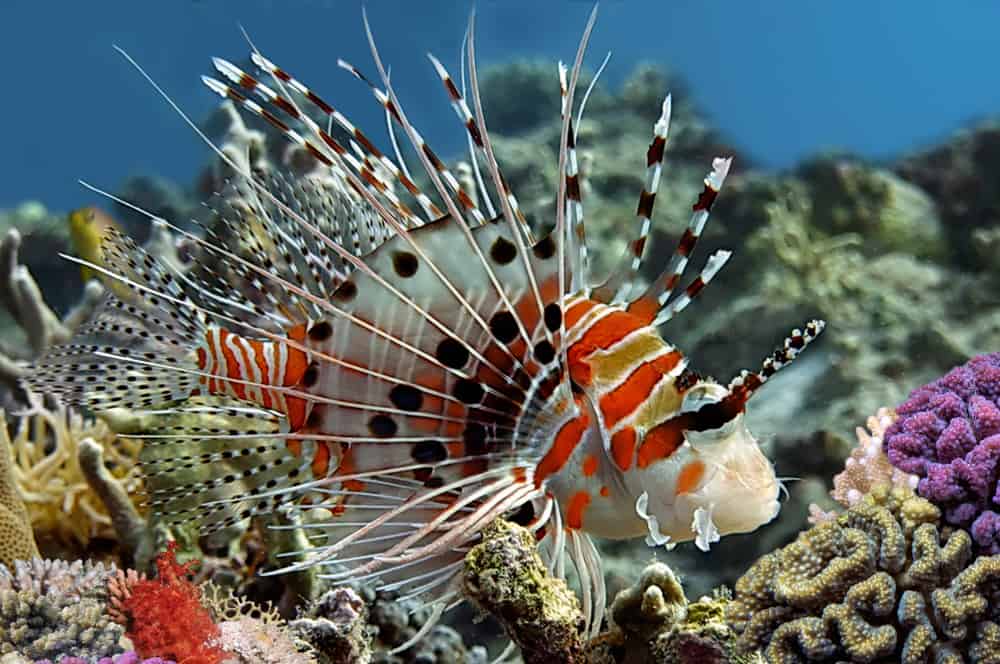
One lionfish you may take home is the Dwarf Lionfish, and they are reef safe!
They won’t actively harm sessile inverts, such as coral, that you have in your tank unless they cause accidental injuries while hunting for food.
They will, however, seek out and hunt all fish, shrimp, and crabs small enough to fit in their mouth.
That being said, lionfish can be sloppy eaters, and because of that, their tank will need a lot of maintenance if you plan on keeping them in a reef.
Even if they aren’t kept in a reef, they can still be a lot of work.
Proper Lionfish Environment
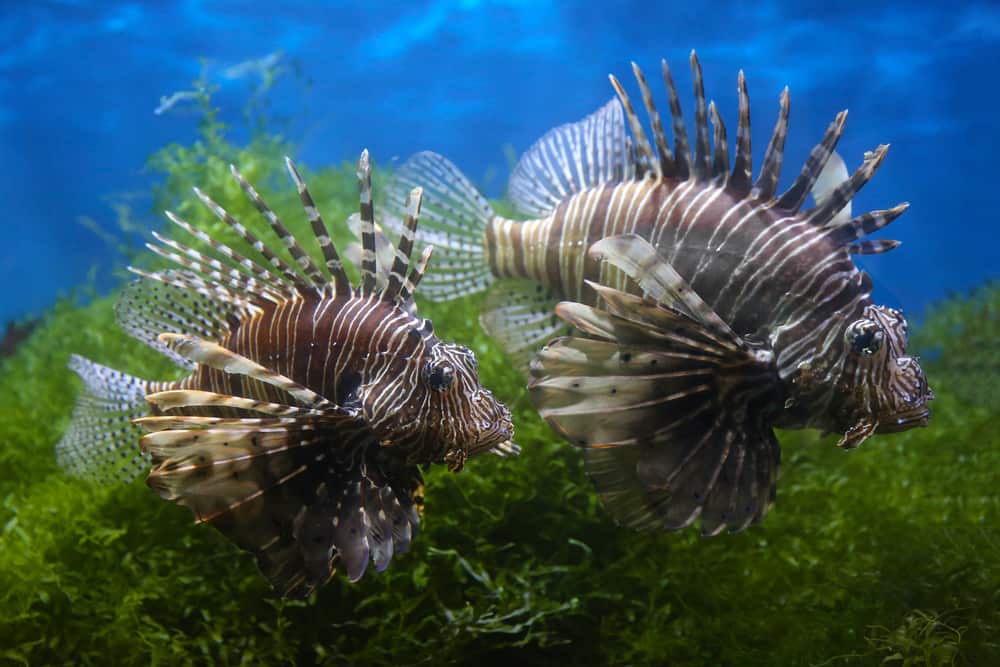
General lionfish care should begin with their tank setup as they can grow to be up to eighteen inches, depending on the species, and it’s recommended that they be kept in tanks for 50 gallons or larger.
There are a few different types of lionfish you can add to your reef tank, and while all lionfish generally prefer warm waters, specifics should be discussed when purchasing your lionfish.
A good general water temperature should be between 72 and 78 degrees, and the salinity level should be between 1.020 and 1.026.
As for the actual tank itself, lionfish should have a somewhat rocky terrain with caves and places to hide just like their natural habitat.
Begin by planning out the design of your tank and determining how much room you have.
It’s also a good idea to know what kind of coral you want to incorporate in your tank ahead of time.
If you’re fairly new to the reef keeping scene, there are a few different types of coral we can recommend to you.
The first are Cladiella corals, such as colt and finger leather coral.
They’re hardy, and you can count on them to adapt to aquarium life quickly.
Another type of coral which does well no matter the light level are Pachyclavularia corals, like daisy polyps, star polyps, and green star polyps.
They can be somewhat sensitive when it comes to iodine additions and aluminum oxide, but other than that, they’re known to do quite well in at-home reef tanks.
Reef tanks should also have a set maintenance schedule, no matter what lives inside.
The tank’s pH, alkalinity, calcium, nitrite, and ammonia levels should be checked once a week, while nitrate levels should be checked every two weeks.
It’s also important for your fish and coral’s health that phosphates are checked once a month.
All in all, the coral you select is up to you, but just make sure your coral will do well with your lionfish and that it can provide hiding places for any potential tankmates.
Tankmates for Lionfish
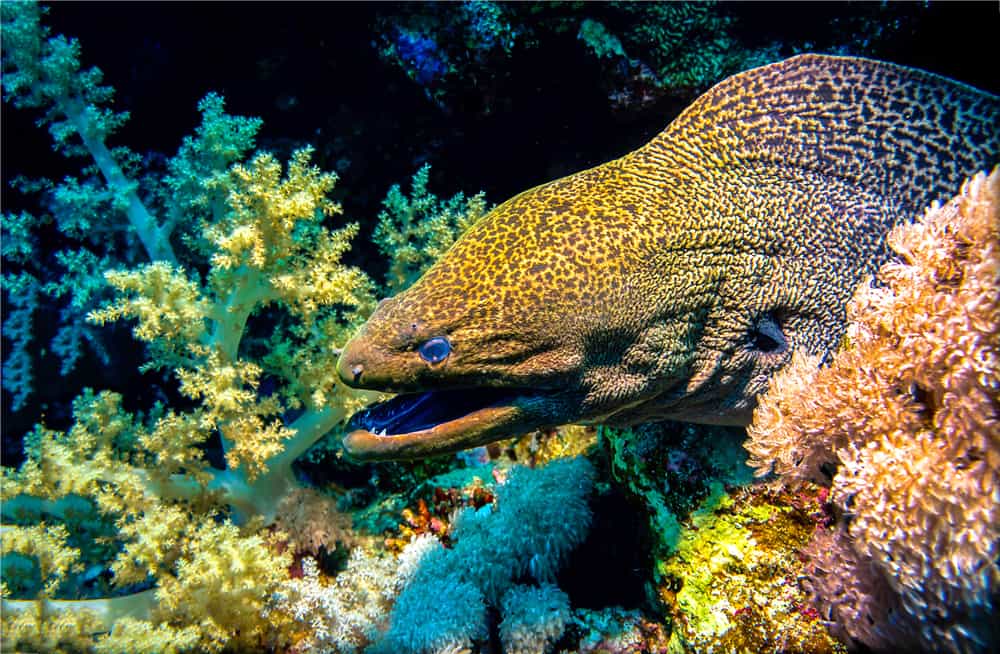
If you’re hoping to give your lionfish some tank mates, you may want to reconsider.
On top of being predators, lionfish have venomous spines which will sting just about any penetrable flesh that they come across.
However, if you still wish to give your lionfish some companions, it’s best to house them with other venomous or poisonous fish that won’t be affected by their sting, such as moray eels, puffers, triggerfish, and large rabbitfish.
However, just because a creature is immune to a lionfish’s sting doesn’t mean they cannot and will not be hunted.
Lionfish are very greedy eaters and will eat whatever living thing they can fit in their mouth.
Other Fish That Are Reef Safe
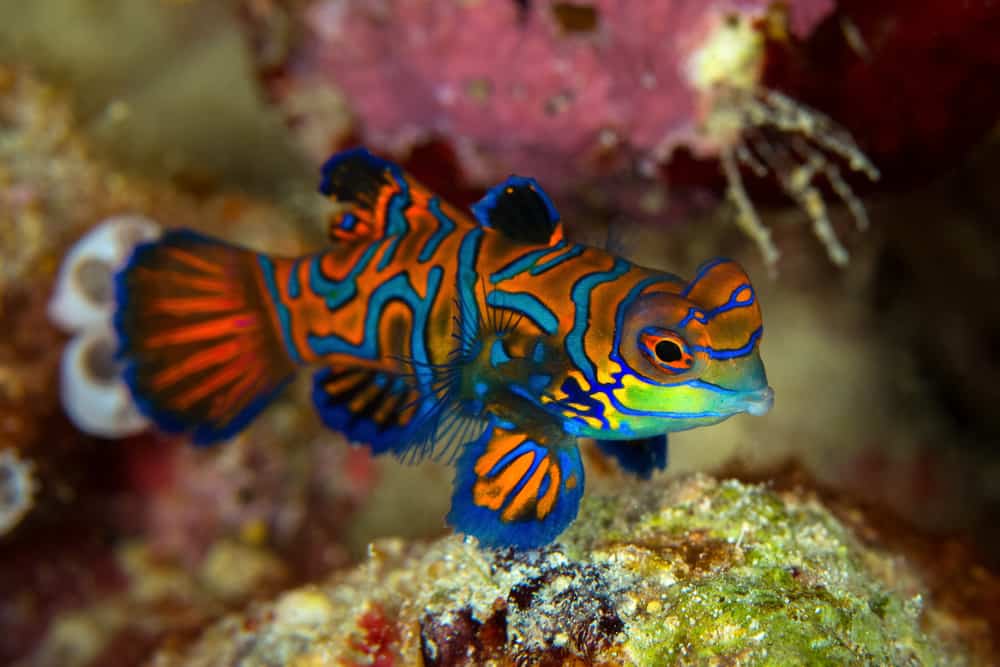
If you’re still unsure about getting a lionfish or two but still want to add fish to your reef tank, we completely understand.
There are a few other fish that are reef safe but should not be housed with lionfish, as they will most likely be hunted.
Your reef tank can include species like angelfish, Gobies, tangs, Mandarinfish, clownfish, and Dragonettes.
Just be sure that all the water requirements match up when housing fish together, and avoid attempting to house them with large predators, such as the lionfish.
How Do Lionfish Hunt?
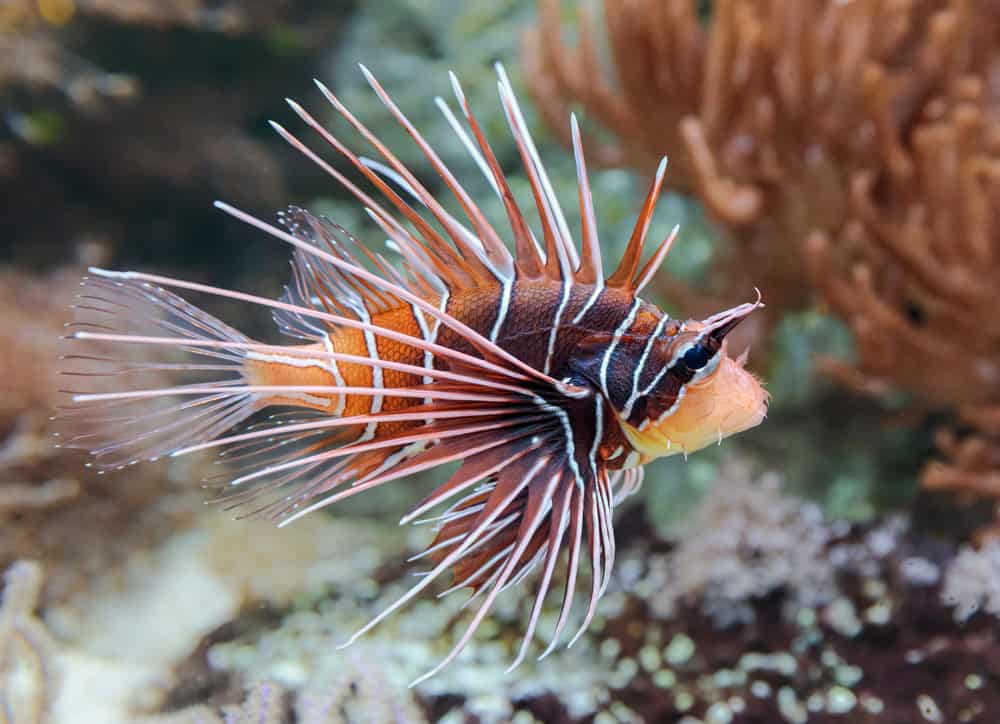
Lionfish are usually not very active swimmers, and some of the only activity you’ll really see from them is when they’re hunting.
Lionfish hunt by spreading out their pectoral fins and pushing their prey back until they are cornered, and from there, they swallow them whole.
A lionfish can swallow creatures two-thirds the size of their body and open their jaws unbelievably wide.
You will definitely witness this behavior first-hand when you release either feeder shrimp or attempt to train them to eat frozen food.
You can feed dwarf lionfish frozen food if you move the food in a manner that mimics live food, sort of like fishing.
They should be fed once or twice a day, and any frozen food you plan on feeding them should be properly thawed beforehand, as it would with any other fish.
Tips for Maintaining a Lionfish Tank

Their care isn’t limited to just tankmates and water conditions as a little extra attention is sometimes needed.
One example is their venomous sting, which can affect humans.
A lionfish’s sting can be compared to bee stings: usually harmless, usually painful, with the possibility of an allergic reaction.
If you happen to be stung by one of your lionfish, it’s important that you don’t panic.
Simply seek medical attention.
You can also neutralize some of the venom’s damage by placing the wound in a hot water bath, though we must warn that it can be difficult to find the temperature that will destroy the lionfish venom without harming the affected person in the process.
This next bit of information if more of a fun behavioral fact than a tip.
You may notice your lionfish beginning to greet you when you walk in the room by swimming to be close to you.
Fish do indeed recognize human faces, and they will recognize and greet their owners.
Meanwhile, on the other hand, you may also notice your lionfish becoming shy when first introduced to their new tank, but don’t worry as that’s completely normal.
You may spot them resting near or on rocks, blending in with their environment.
To encourage your lionfish to explore their tank and become comfortable with it, minimalize movement and vibrations to avoid frightening them even further.
Lionfish should have plenty of room to swim around and explore, but there should also be plenty of hiding places.
It’s also been noted that, when there are fish already swimming in their tank (which the lionfish cannot eat), your lionfish may feel a little more comfortable.
Keeping Your Lionfish Healthy
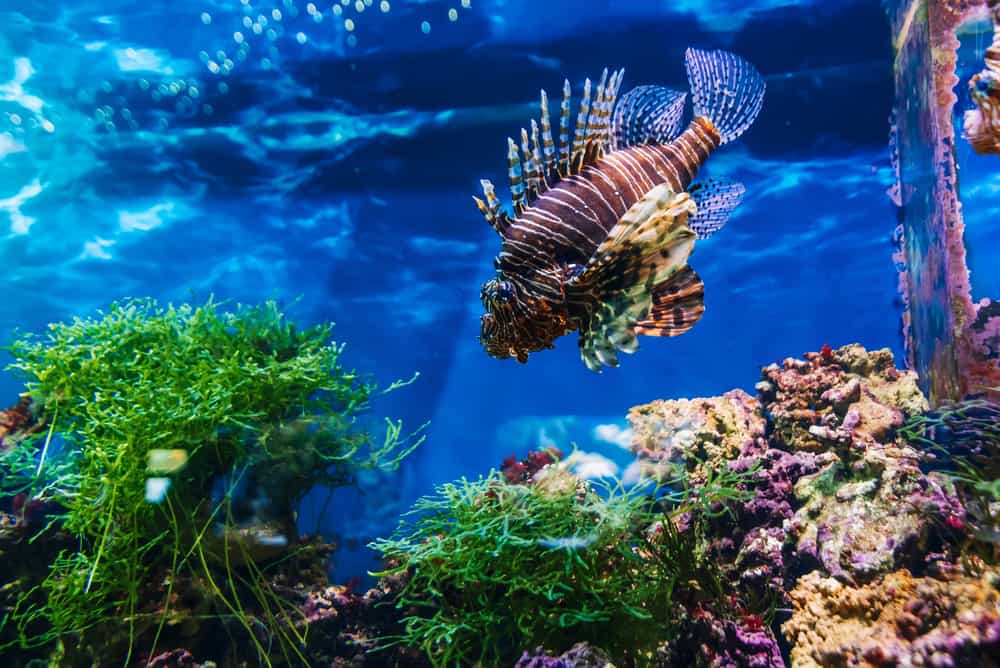
There are a few different signs of a healthy, happy lionfish such as lazing around their tank, eating plenty of whatever they can find, bright coloring and clear eyes, but what are the signs of an unhealthy lionfish?
Your lionfish may not be feeling too well if you notice them swimming erratically, losing weight, losing their color, clouding of the eyes, or spots or fungus growing on their mouth or body.
Lionfish can be affected by illnesses such as fin rot and marine ich, which will most noticeably affect their fins.
Other signs of marine ich include cysts on their skin, gills, and fins, as well as labored breathing and pale skin or excess mucus.
For fin rot, it’s best to consult a vet for treatment and improve their water’s quality.
For marine ich, you should treat their tank with a commercial parasite remedy and work to improve the water’s overall quality.
If your lionfish seems ill and other sicknesses have been ruled out, the problem may lie in either the water conditions or overcrowding.
Keep a close eye on your water’s quality, and do your best to avoid overpopulation.
All in all, it’s best to keep an eye on your lionfish’s color, behavior, and appetite.
We Ain’t Lion
Now you know everything you need to about lionfish in a reef tank!
It may be a bit of work building a reef and keeping lionfish at home, but they’re well worth the effort.
After all, who wouldn’t love to come home at the end of the day to watch their own aquatic world while they relax and unwind?
We hope you love the way your reef has turned out, and that your lionfish are thriving in their new home!
How is your reef set up?
Have your lionfish been doing well?
Do they have any tankmates?
Leave us a comment down below.
We always love hearing from you and reading what you have to say.
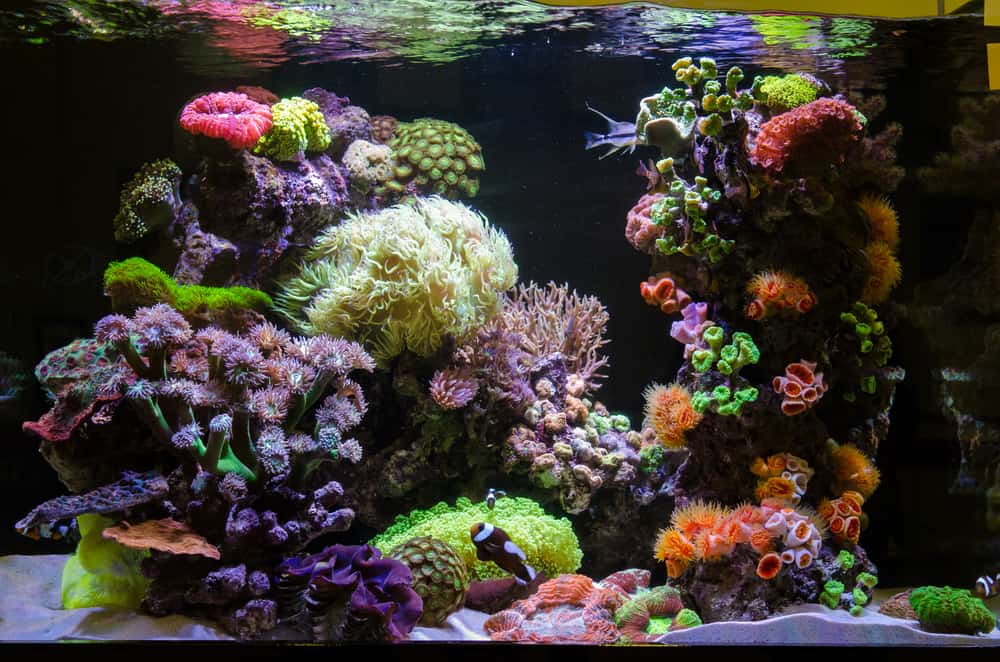
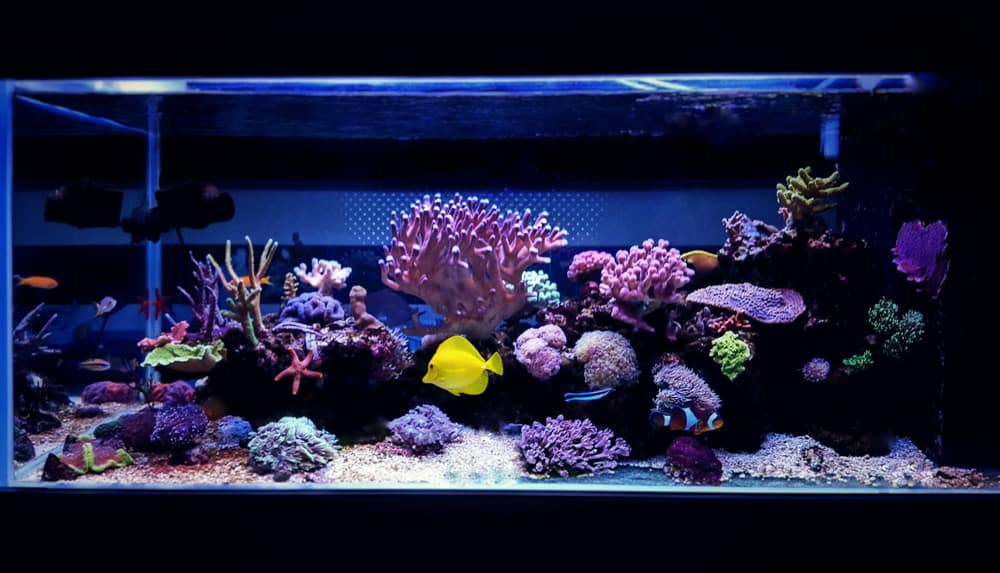
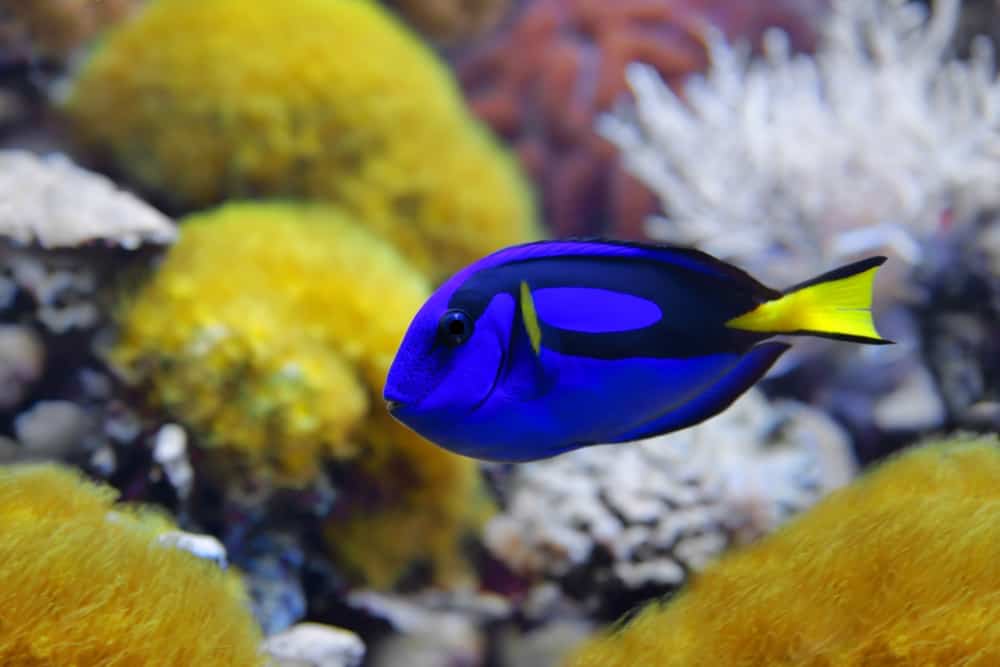
Leave a Reply